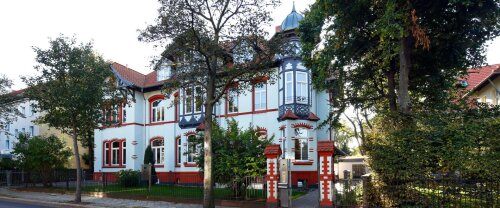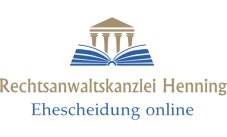Best ADR Mediation & Arbitration Lawyers in Erfurt
Share your needs with us, get contacted by law firms.
Free. Takes 2 min.
List of the best lawyers in Erfurt, Germany
About ADR Mediation & Arbitration Law in Erfurt, Germany
Alternative Dispute Resolution (ADR) methods, including mediation and arbitration, play an increasingly important role in resolving civil and commercial disputes in Erfurt, Germany. Instead of relying solely on court systems, ADR offers structured yet flexible procedures where neutral third parties help the disputing parties achieve a voluntary settlement (mediation) or issue a binding decision (arbitration). These procedures can provide a faster, less adversarial, and often more cost-effective route to conflict resolution, making them popular among private individuals, businesses, and organizations within the region. German law supports and regulates ADR processes, ensuring their integrity and enforceability under both national and international legal frameworks.
Why You May Need a Lawyer
While mediation and arbitration are meant to simplify dispute resolution, navigating ADR processes still requires a sound understanding of legal rights, obligations, and procedural rules. You may need a lawyer if:
- You are involved in a commercial or civil dispute and seek a less confrontational process than court.
- Contract terms obligate you to use ADR in case of disagreements.
- You need advice on whether mediation or arbitration fits your circumstances.
- You want assistance drafting or interpreting ADR clauses in contracts.
- You must enforce, appeal, or challenge an arbitration award or mediated agreement.
- You have concerns about the neutrality, legality, or conduct of the ADR process.
- International elements (such as cross-border business disputes) complicate the matter.
- You want to ensure the confidentiality, enforceability, and efficiency of the settlement process.
Local Laws Overview
In Erfurt and throughout Germany, ADR is governed by both national legislation and European Union regulations. Key legal frameworks include:
- The German Code of Civil Procedure (Zivilprozessordnung/ ZPO): Regulates arbitration proceedings, the recognition and enforcement of arbitration agreements, and awards.
- The Mediation Act (Mediationsgesetz): Establishes legal norms for mediation, emphasizing voluntary participation, confidentiality, and the neutrality of mediators.
- Consumer Dispute Resolution Act: Provides the legal basis for consumer ADR entities and procedures.
- Enforcement and Recognition: International arbitration awards may be enforced in Germany under the New York Convention, to which Germany is a signatory.
- Local ADR institutions: Erfurt hosts regional chambers of commerce and specialized ADR panels for specific industries.
Local courts in Erfurt recognize and may even encourage the use of ADR before beginning formal litigation, especially in civil and commercial disputes. Public and private mediation centers are available, with some offering court-annexed mediation services.
Frequently Asked Questions
What is the difference between mediation and arbitration?
Mediation is a voluntary, confidential process where a neutral mediator helps parties find a mutually acceptable settlement. Arbitration, by contrast, involves a neutral arbitrator who conducts a hearing and issues a decision (award), which is usually binding.
Are mediated agreements or arbitration awards legally binding in Germany?
Mediated agreements become binding once parties formally agree and, if necessary, notarize the settlement. Arbitration awards are binding and can be enforced through German courts.
Do courts in Erfurt require or recommend ADR?
Civil courts in Erfurt and all over Germany can recommend ADR before or during litigation. In many cases, courts urge parties to attempt mediation, especially in family or commercial disputes.
Who pays the costs of ADR procedures?
Costs are usually shared by the parties, unless otherwise agreed. Exact fees depend on the complexity, length, and type of dispute and the ADR provider involved.
Can I use ADR for any type of dispute?
ADR is suitable for most civil, commercial, employment, and family law disputes, but not for criminal matters, certain administrative matters, or cases involving inalienable public interests (such as parental custody rulings).
What languages are used in ADR proceedings in Erfurt?
Most proceedings are conducted in German, but parties can agree to use other languages if all participants (including the mediator or arbitrator) consent.
How long do ADR proceedings usually take?
ADR proceedings are typically faster than court processes. Many mediations conclude within a few sessions, while arbitration may take a few months, depending on the case’s complexity.
How do I find a qualified mediator or arbitrator in Erfurt?
Lawyers, local bar associations, chambers of commerce, and court registries can provide lists of experienced, certified ADR professionals.
What are the main advantages of ADR compared to court litigation?
ADR offers confidentiality, faster resolution, more control over outcomes, less formality, and can help preserve business or personal relationships.
Do I need legal representation in ADR proceedings?
Legal representation is not mandatory but is recommended, especially for complex or high-stakes cases, to protect your rights and interests.
Additional Resources
Consider consulting the following resources and organizations in Erfurt and Germany-wide for further information and assistance on ADR:
- Thuringian Chamber of Commerce and Industry (IHK Erfurt): Provides ADR and arbitration services and referrals in the region.
- Local Bar Association (Rechtsanwaltskammer Thüringen): Offers information on lawyers specializing in ADR.
- German Mediation Association (Bundesverband Mediation): Maintains a directory of qualified mediators and information about mediation standards.
- German Institution of Arbitration (DIS): Administers arbitration proceedings and provides best practices for commercial disputes.
- Consumer Conciliation Boards (Verbraucherschlichtungsstellen): Specialized in consumer-business dispute resolution, often free of charge for consumers.
- Local courts (Amtsgericht or Landgericht Erfurt): Can refer parties to court-annexed mediation schemes or provide further guidance.
Next Steps
If you believe your dispute may benefit from ADR in Erfurt, consider the following steps:
- Assess your situation to determine if ADR is appropriate for your dispute.
- Consult with a local lawyer experienced in mediation and arbitration to understand your rights and options.
- Gather relevant documents (contracts, correspondence, evidence) to facilitate a productive discussion.
- Decide together with your lawyer on mediation or arbitration, or both, as the best course forward.
- Choose a neutral, certified mediator or arbitrator-ask for references or credentials if needed.
- Agree on procedures, language, and costs before the process begins.
- Participate in good faith and keep an open mind for possible settlement solutions.
- If a resolution is reached, ensure it is properly documented and, if necessary, notarized or recognized by a court.
- If you need to enforce an arbitration award or mediated settlement, your lawyer can assist with the necessary steps in local courts.
Taking timely, informed action with professional legal support can help you navigate ADR processes efficiently and achieve a satisfactory resolution.
Lawzana helps you find the best lawyers and law firms in Erfurt through a curated and pre-screened list of qualified legal professionals. Our platform offers rankings and detailed profiles of attorneys and law firms, allowing you to compare based on practice areas, including ADR Mediation & Arbitration , experience, and client feedback.
Each profile includes a description of the firm's areas of practice, client reviews, team members and partners, year of establishment, spoken languages, office locations, contact information, social media presence, and any published articles or resources. Most firms on our platform speak English and are experienced in both local and international legal matters.
Get a quote from top-rated law firms in Erfurt, Germany — quickly, securely, and without unnecessary hassle.
Disclaimer:
The information provided on this page is for general informational purposes only and does not constitute legal advice. While we strive to ensure the accuracy and relevance of the content, legal information may change over time, and interpretations of the law can vary. You should always consult with a qualified legal professional for advice specific to your situation.
We disclaim all liability for actions taken or not taken based on the content of this page. If you believe any information is incorrect or outdated, please contact us, and we will review and update it where appropriate.











